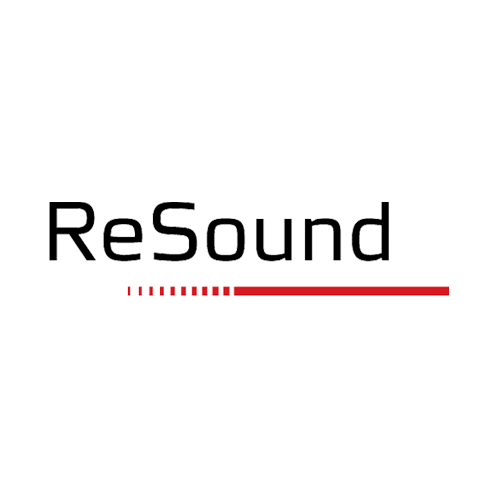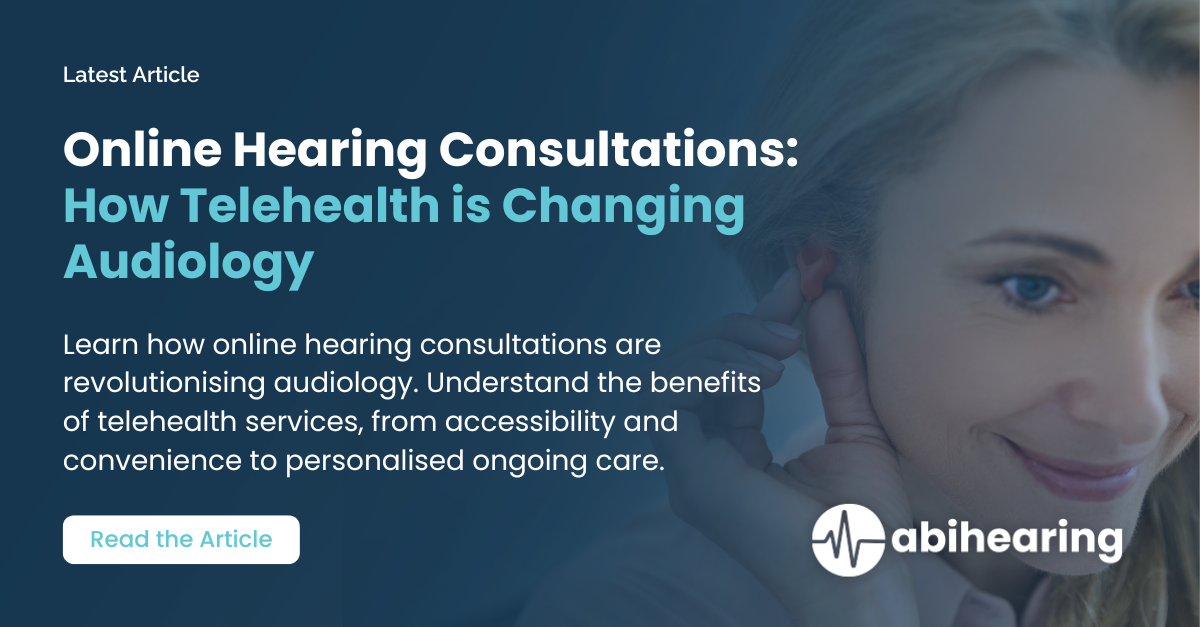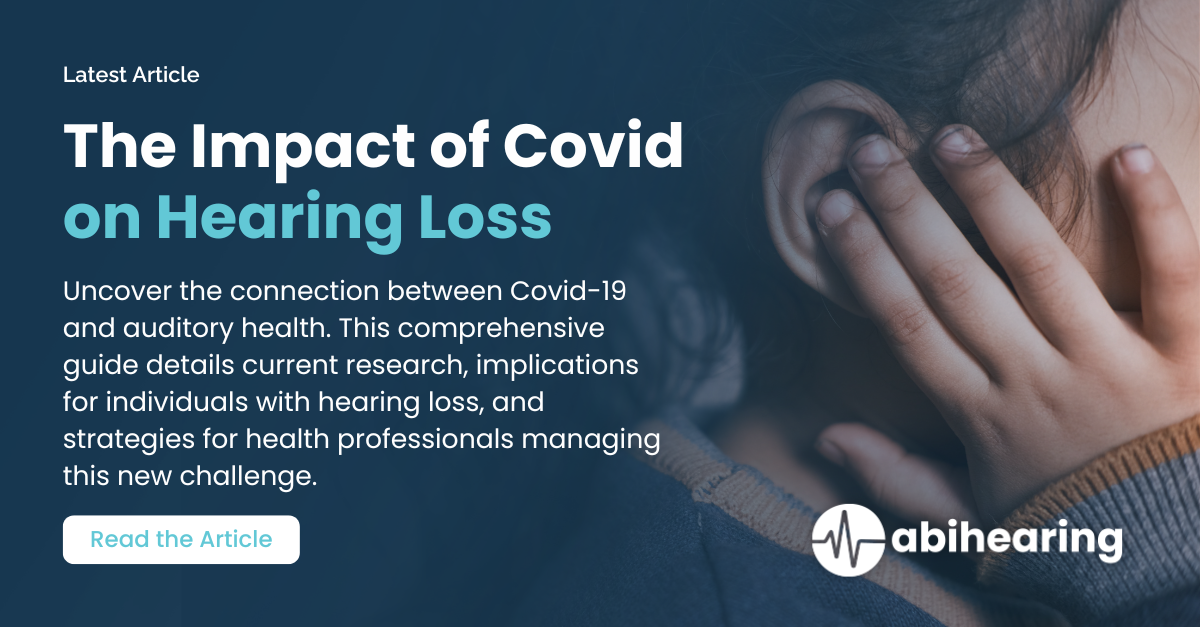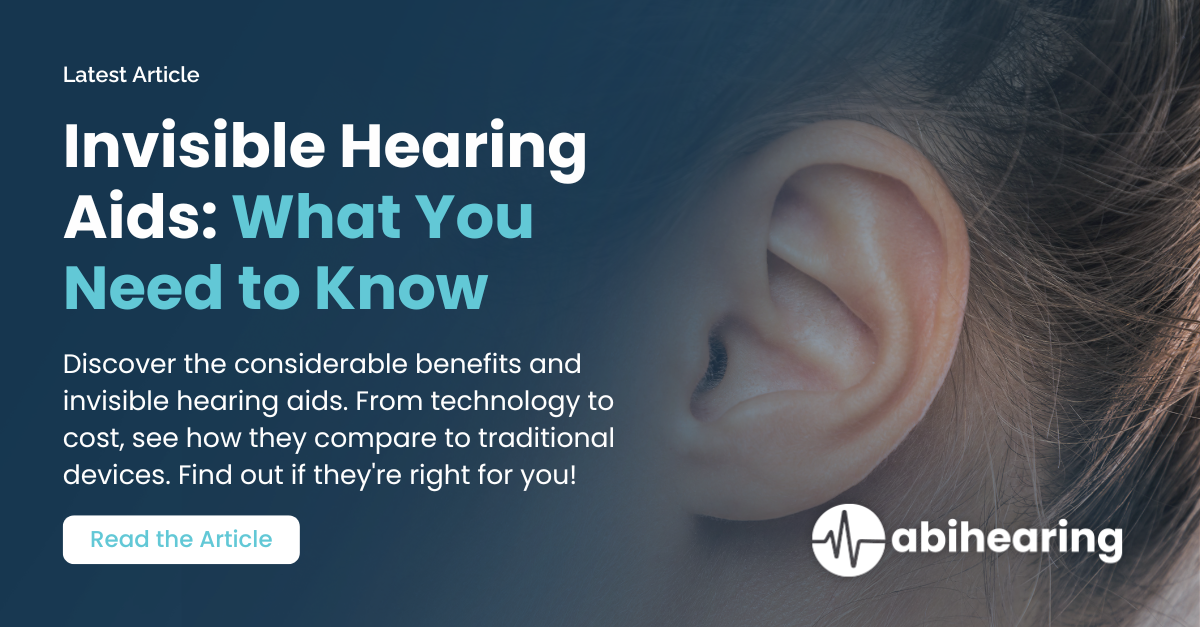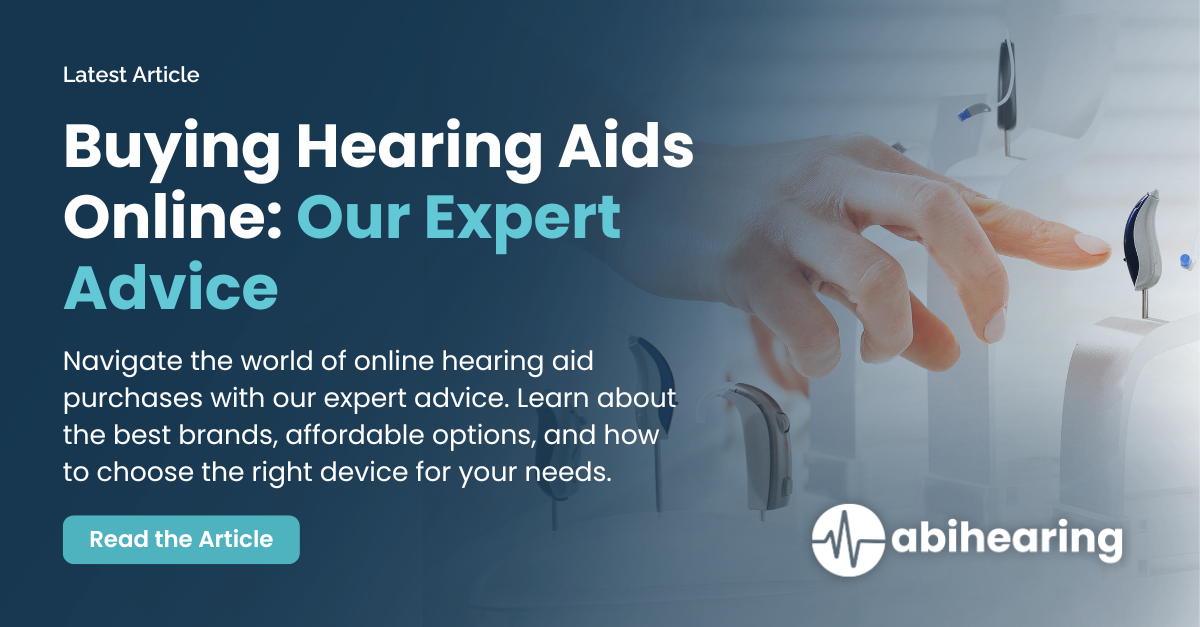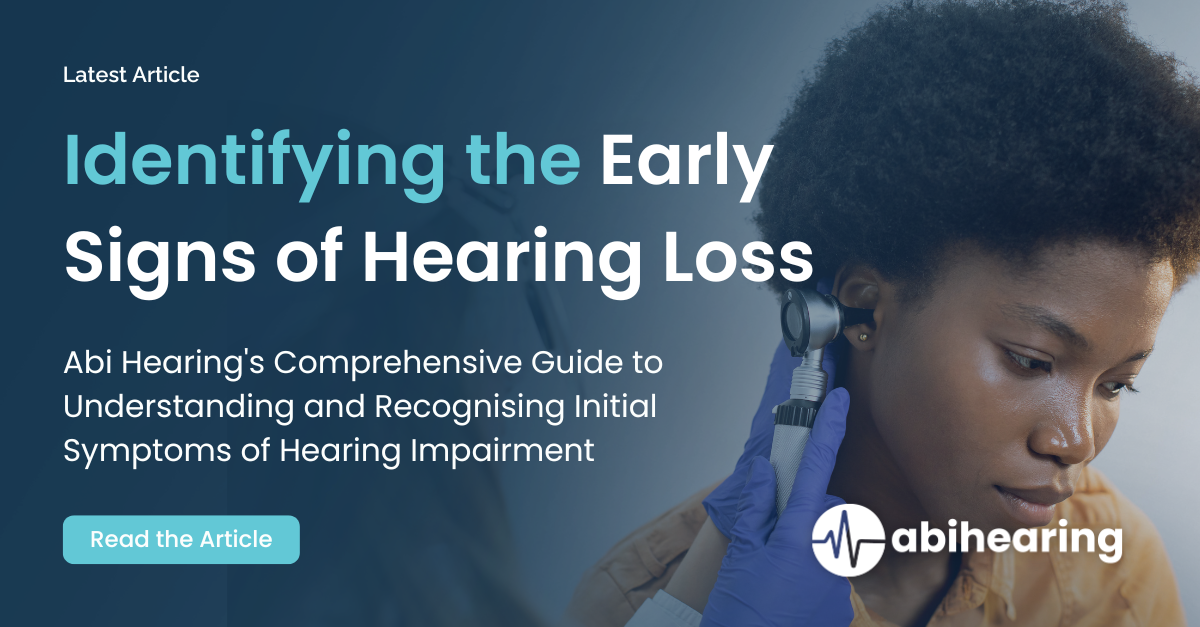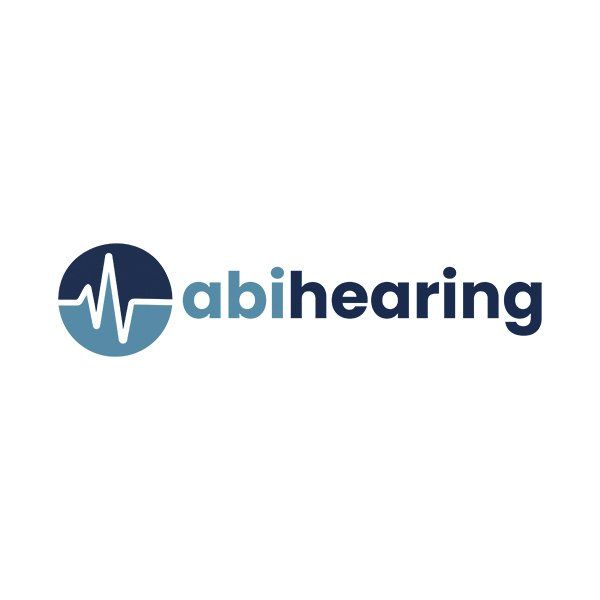Abi Hearing are Melbourne Hearing Test Specialists for Babies
Abi Hearing provides comprehensive hearing test and personalised treatment programs for hearing health needs of your babies.
What is a Hearing Test?
Now and then, your physician may ask you to get a hearing test. Don’t assume that something is wrong. Hearing tests are how doctors use to make sure that your ears work well. With age, hearing loss becomes more likely. About 14% of people ages 45 to 64 have some degree of hearing loss, but that rises to more than 30% among people at 65 or older.
Millions of Australians suffer some form of hearing loss. Many people have minor loss they deal with successfully for years. Over time you may have trouble understanding words, especially when there is background noise, room echo, or you're in a crowd of people.
You might have trouble hearing consonants so some words sound like others. You may have to ask people to speak more slowly, stop mumbling, or speak more loudly. When someone talks, you often turn your head to hear with your good ear, or your family tells you you're playing the TV and car radio too loudly.
Loud sounds may be painful or uncomfortable. You may have a ringing in your ears that won't go away.
All these things are signs you may be struggling with compromised hearing. A hearing test can pinpoint exactly where your problems lie.
Most people have hearing loss in certain frequencies while other frequencies are normal. You might have a hard time hearing highs, need to turn up the lows, or are missing key frequencies that make you miss words when other people speak.
Hearing Health Clinic Melbourne
Why Would I Need a Hearing Test?
We are Melbourne locals who care.
Some people may suspect that they have hearing loss. They have trouble hearing people talk to them when they’re in a crowded room, or they’ve been told they raise the volume on the TV way too high. But not all people know that they have a problem. You may not realize that you have hearing loss, because it’s often a gradual process. That’s why it’s important to have your ears checked when your doctor says you should, even if you think you’re fine.
There are many causes of hearing loss in adults:
- Being around loud noises often at work
- Mowing the lawn or using power tools
- Shooting guns or other weapons
- Loud music, both live and recorded
- Too much ear wax
- Getting hit on the head
- Having an infection
- Taking certain drugs
- Problems with hearing that run in the family
Older adults who don’t do anything to address their hearing loss are more likely to feel left out of social events that they’d normally enjoy, because they can’t hear what’s happening. They might even stop seeing their friends or family as often because they’re embarrassed that they can’t hear well. Isolation makes people more likely to become depressed, unless they get help for their hearing loss. Learn more about the different types of hearing loss tests and what you can expect from each.
Other Hearing Health Services
Balance Tests
Balance testing can help diagnose a wide range of hearing related illnesses. If you are experiencing loss of balance, unsteadiness, light-headedness or any other ear systems reach out to our experts.
Hearing Aid Prescription & Fitting
Abi Hearing offers a comprehensive list of hearing aids. If you are suffering hearing loss we can help by prescribing and fitting the right hearing aid to suit your needs.
Hearing Aid Repairs
Like most medical devices, hearing aids at some point will need repair. Abi Hearing specialise in all major hearing aid brands and provide repair services at competitive prices.
Hearing Loss Treatment & Prevention
Tinnitus Evaluation & Treatment Plans
If you are suffering from ringing, buzzing or whirring in your ears, you may well have tinnitus. Abi Hearing are tinnitus treatment and prevention experts.
Auditory Training Program
We use Listening And Communication Enhancement (LACE) program as part of our aural rehabilitation process. This program aims to retrain the brain to comprehend speech up to 40% better in difficult listening situations.
Hearing Conservation Program
Depending on the industry you work in, you might be at greater risk of hearing loss. Abi Hearing aim to educate workers on what they can to to prevent hearing loss and protect themselves when at work.
Audio Clinic Melbourne
Local Audiology Clinic Trusted by the Community
The friendly team at Abi Hearing maintain a no-pressure environment where your best interests are always respected. This honest approach has brought many return customers and enthusiastic referrals.
Independent and Locally Owned
Abi Hearing is proud to be a fully independent audiology clinic. Our audiologists are under no obligation to promote any specific manufacturer’s products. We stock hearing technologies from a full range of manufacturers.
You will receive an unbiased hearing evaluation and honest product recommendation. If you have felt pressured in the past to buy a specific hearing aid, you will find our fair and balanced approach refreshing.
Trusted and Recommended by ENT specialists, GPs and Allied Health Professionals
Abi Hearing has a strong reputation for excellence with local Ear Nose and Throat (ENT) specialists, GPs and other allied health professionals.
ENT specialists share office space with Abi Hearing. You can see an ENT immediately, without a long wait or inconvenient travel time.
Schedule An Appointment With Our Hearing Health Experts Today!
There are a few different types of Bulk Billed Hearing Tests. The most common type is an audio diagnostic test, which is used to screen for hearing loss. This type of test usually takes around 30 minutes to complete.
If you are interested in getting a Bulk Billed Hearing Test, talk to the team at Abi Hearing. They will be able to tell you if you are eligible for a test and book your appointment at our Bundoora Audiologist Clinic.
The entire team at Abi Hearing looks forward to meeting you. We are ready to answer your questions, fully understand your hearing challenges, and introduce you to exciting new technologies that can give you the excellent hearing you've been wanting.
Book an Appointment
We will get back to you as soon as possible.
Please try again later.
Read the Latest Articles for Abi Hearing Clinic's Audiology
& Hearing Loss Experts
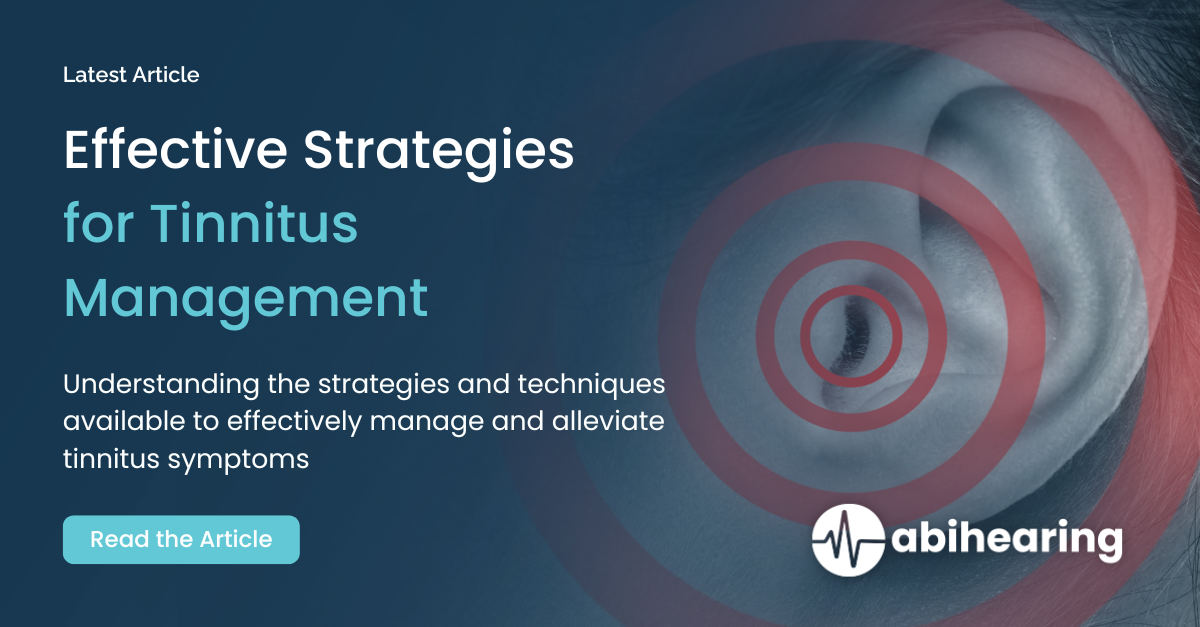
Common Questions About Hearing Aids
-
What does a hearing aid do?
A hearing aid is a device worn behind the ear, in the outer ear canal, or in the middle ear to amplify sounds. It can be used to improve mild to moderately-severe losses due to sensorineural hearing impairment and conductive hearing impairment. Some hearing aids also have a built-in T-coil (telecoil) which can be used to improve the listening experience for people with single-sided deafness, or when there is a lot of noise present.
Hearing aids make it possible for people with mild to severe hearing loss to hear sounds more clearly. There are different types of hearing aids that can be used in either one or both ears.
A digital hearing aid is an electronic device that amplifies sound. Digital hearing aids convert sound waves into electrical signals that are then amplified. This type of hearing aid is a more modern technology offering greater benefits to users.
-
How do I know if I need a hearing aid?
If you have trouble hearing, or if people complain that you're turning the TV volume up too high, you may need a hearing aid. A hearing test can confirm whether you have a problem.
-
How do I know which type of hearing aid is right for me?
Your audiologist will help you choose the type of hearing aid that's best suited for your needs and lifestyle. Factors that will be considered include the severity of your hearing loss, your listening environment, and your budget.
-
What are the different types of hearing aids?
The four main types of hearing aids are:
1. Behind-the-ear (BTE)
This is the most common type of hearing aid. It sits behind the ear and has a clear plastic tube that goes down into the ear canal. BTEs are available in a variety of styles and colors, and are the most durable type of hearing aid.
2. In-the-ear (ITE)
This type of hearing aid is custom made to fit snugly in the outer part of your ear. ITEs are less visible than BTEs, but they may not be as durable.
3. In-the-canal (ITC) and completely-in-the canal (CIC)
These are the smallest and most discreet type of hearing aid. ITCs and CICs sit in the ear canal and are not visible once they are in place. They can be more difficult to adjust than other types of hearing aids.
4. Invisible Hearing Aid (IHA)
An invisible hearing aid is designed to be worn for extended periods of time to minimise the hassle of managing your hearing health. The devices are inserted deep into the canal, by a qualified Audiologist and remain there for their lifecycle.
-
What are the different parts of a hearing aid?
The different parts of a hearing aid include:
1. The microphone
This is the part of the hearing aid that picks up sound from the environment.
2. The amplifier
This part of the hearing aid increases the volume of sound that is picked up by the microphone.
3. The receiver
This is the part of the hearing aid that sends sound to your ear.
4. The battery
This powers the hearing aid. Hearing aids use either disposable or rechargeable batteries.
5. The processor
This controls how the hearing aid sounds and adjusts to different environments.
6. The casing
This is the outer shell of the hearing Aid.
-
What are the different features of a hearing aid?
There are many different features that you can choose from when you buy a hearing aid. Some common features include:
1. Volume control
This lets you adjust how loud or soft the sound is coming through the hearing aid.
2. Tone control
This allows you to adjust the tone of the sound, making it sound more natural.
3. Noise reduction
This feature reduces background noise, making it easier to hear conversation.
4. Directional microphones
This feature allows you to adjust the hearing aid so that it picks up sound from the front, making it easier to hear in noisy environments.
5. Telecoil
This is a special setting that helps you hear better on the telephone and in places where there is a loop system set up (such as a movie theatre or museum).
-
What are the different types of hearing loss?
There are two main types of hearing loss: conductive and sensorineural.
1. Conductive hearing loss
This type of hearing loss occurs when there is a problem with the structure of the ear or the way that sound waves are conducted through the ear. Conductive hearing loss can be caused by things like wax build-up, infection, or damage to the ear.
2. Sensorineural hearing loss
This type of hearing loss occurs when there is a problem with the inner ear or the way that the brain interprets sound. Sensorineural hearing loss can be caused by things like age-related hearing loss, noise exposure, or injury.
-
What are the benefits of using a hearing aid?
There are many benefits to using a hearing aid. Some of the most important benefits include:
1. Improved communication
Hearing aids help you hear better in both quiet and noisy environments, making it easier to communicate with others.
2. Improved quality of life
Hearing aids can help you stay connected to your loved ones and participate in activities that you enjoy.
3. Improved safety
Hearing aids help you hear warning signals and other important sounds, making it easier to stay safe in your environment.
4. Improved mental health
Research has shown that using a hearing aid can improve your mood and overall well-being.
5. Improved self-confidence
Using a hearing aid can help you feel more confident and social, which can lead to a better quality of life.
6. Reduces the risk of developing dementia
Research has shown that using a hearing aid can reduce the risk of developing dementia by up to 50%.
7. Reduces the risk of falling
Hearing aids help you hear better in your environment, which can help you stay safe when walking or climbing stairs.
8. Reduces the risk of social isolation
Hearing loss can often lead to social isolation, but using a hearing aid can help you connect with others and stay involved in your community.
9. Affordable
Many health insurance plans cover the cost of hearing aids, making them more affordable for those who need them.
10. Customizable
Hearing aids come in many different styles and colours, so you can find one that fits your personality and lifestyle.
-
Which hearing aids can I choose from at Abi Hearing?
-
How do I know if I need a hearing aid?
We all know that hearing loss can cause many problems. It can be a serious issue for those who work in noisy environments, in the office or on the construction site, or an inconvenience for someone wanting to tune into their favourite TV show. If you have any of the following symptoms, it is time to schedule an appointment with your audiologist:
Any noticeable change in your hearing
You have a hearing loss that is severe enough to interfere with your life
You have tinnitus
You have sudden and unexplained hearing loss
You are not able to hear a conversation from across the room or in a quiet room
You are missing conversations on your Phone or in the car
You experience dizziness, vertigo, or ringing in the ears
If you are experiencing any of these symptoms, it is important to schedule an appointment with your audiologist. The sooner you get treatment, the easier it will be to manage your symptoms and the less they will impact your life.
-
Can hearing aids cause vertigo?
There is no evidence to suggest that properly fitted hearing aids can cause vertigo. However, if you are experiencing vertigo or other dizziness-related symptoms, it is important to speak with your audiologist. There may be another underlying cause for your symptoms that needs to be addressed.
-
How often do hearing aids need to be replaced?
Hearing aids do not need to be replaced on a regular basis. However, over time they may start to lose their effectiveness or become damaged. If you notice that your hearing aids are not working as well as they used to or if they are damaged, it is important to see your audiologist for a replacement.
-
Can hearing aids cause headaches?
There is no evidence to suggest that properly fitted hearing aids can cause headaches. However, if you are experiencing headaches, it is important to speak with your audiologist. There may be another underlying cause for your symptoms that needs to be addressed.
-
Are hearing aids waterproof?
Most hearing aids are not completely waterproof, but most models come with a water-resistant coatings that can protect them from light rain or accidental exposure to water. It is important to remove your hearing aids before swimming or showering.
-
This Page Talks About:
Vestibular systems, unbiased advice, trained, tinnitus management, tinnitus, tests, test, support, specialists, services, seek, ringing, request, range, quality, qualified, purchase hearing aids, professional, patients, melbourne vic, melbourne, life, latest technology, latest equipment, independent audiologists, independent, helpful, hearing tests, hearing test, hearing services, hearing needs, hearing loss, hearing health, hearing concerns, hearing care, hearing australia, hearing assessment, hearing aids, hearing aid manufacturer, hearing aid, hearing, hear, health, friendly environment, free online hearing test, free hearing check, free hearing, foster, ears, ear wax removal, ear wax, ear, doctors, devices, contact, communication, clinic, clients, children, businesses, better hearing, best audiologists, australia, audiology, audiologists, audiologist near me, audiologist, appointment, aids, aid brands, ages, advice, adults.
Subscribe to our newsletter to stay up to date with our latest offers.
Contact Us
We will get back to you as soon as possible.
Please try again later.
Williamstown Hearing Clinic
54 Electra Street,
Williamstown, Victoria
3016
Business Hours:
Monday to Friday
9.00am to 5.00pm
Phone: (03) 9399 9536
Email: info@abihearing.com.au
North Melbourne Hearing Clinic
Suite 228/55 Flemington Rd,
North Melbourne, Victoria
3051
Business Hours:
Tuesdays and Fridays
9.00am to 5.00pm
Phone: (03) 9326 5334
Email: info@abihearing.com.au


